Academic Visitors
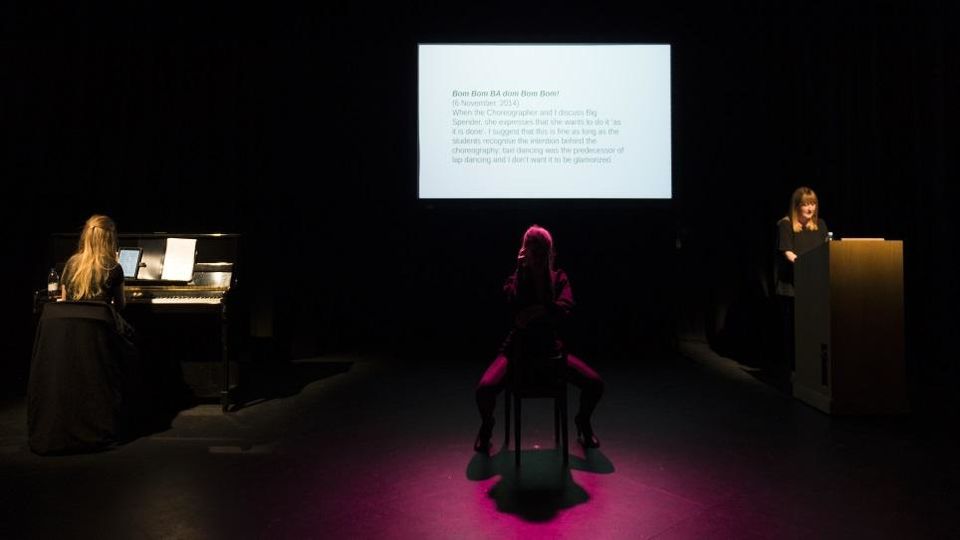
We are pleased to support a series of eminent scholars and researchers as Professorial Fellows, Visiting Research Fellows, and Visiting Scholars each year.
Visiting Research Fellows and Professorial Fellows are invited to Central to contribute to the research culture through a residency. They are expected to participate in School projects, deliver seminars, workshops and/or lectures, contribute to other research activities, including PhD training, and engage with the wider intellectual and cultural life of the institution. They include scholars based at overseas universities and researchers who work outside the UK Higher Education sector.
We further welcome non-stipendiary Visiting Scholars who wish to develop their research as part of our Central community.
If you are interested in applying to be an Academic Visitor, please fill in this short online form, indicating whether you are interested in either the Research or Teaching and Scholarship option. Your interest will then be flagged to the relevant team to follow up accordingly. Please be aware that we are currently undergoing a review of the Governance and Legal aspects of all international Academic visitors, therefore there may be a delay in processing applications until later in the summer 2024.
Below are our current and past visiting researchers, including past Leverhulme Trust Visiting Professors. To find out more about them, see their profiles below.
2023-2024
- Sarah Sigal
Past Fellows
- Patrick Anderson
- Christopher Balme
- Anne Bogart
- Nadia Davids
- Tracy Davis
- Alyson Campbell
- Carolyn Cooper
- Maurice Hamington
- Robert Icke
- Nike Jonah
- Rosanne Kennedy
- Kareem Khubchandani
- Ruth Little
- Claire McDonald
- Rosemary Malague
- Robin Nelson
- Paul Rae
- David Román
- Joanne Rosenthal
- Yana Ross
- Kim Solga
- Priya Srinivasan
- Caridad Svich
- Joanne Tompkins
Tabs
- Prof. Patrick Anderson
- Prof. Christopher Balme
- Prof. Anne Bogart
- Alyson Campbell
- Prof. Carolyn Cooper
- Dr. Nadia Davids
- Prof. Tracy C. Davis
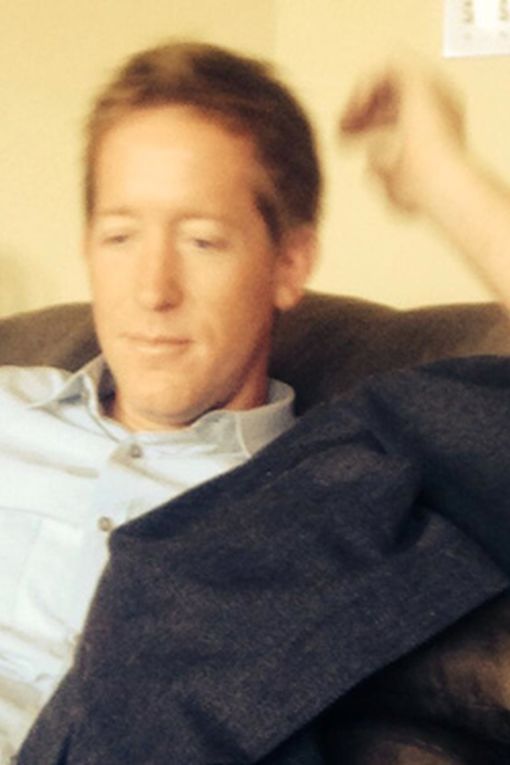
Associate Professor in the Departments of Communication and Ethnic Studies, and the Program in Critical Gender Studies, at the University of California, San Diego.
Prof Patrick Anderson, Visiting Research Fellow at Central. A former Fulbright Scholar and Berkeley Fellow, Anderson pursues research about the production of political subjectivity and objecthood in the context of violence, mortality, and pain. He has published two books: So Much Wasted: Hunger, Performance, and the Morbidity of Resistance (Duke, 2010) and (with Jisha Menon) Violence Performed: Local Roots and Global Routs of Conflict (Palgrave, 2009). His experimental study of extended, life-threatening illness, Autobiography of a Disease, was published in 2017. He is currently completing a critical study of empathy and its discontents — Empathy’s Others — that considers contemporary performance practice and political activism in light of empathy’s troubled genealogy; he will be focused primarily on this project during his visit to Central. Anderson co-edits the Performance Works book series at Northwestern University Press with Nicholas Ridout; he has also served as Vice President of the American Society for Theatre Research and, for seven years, a board member of Performance Studies International.
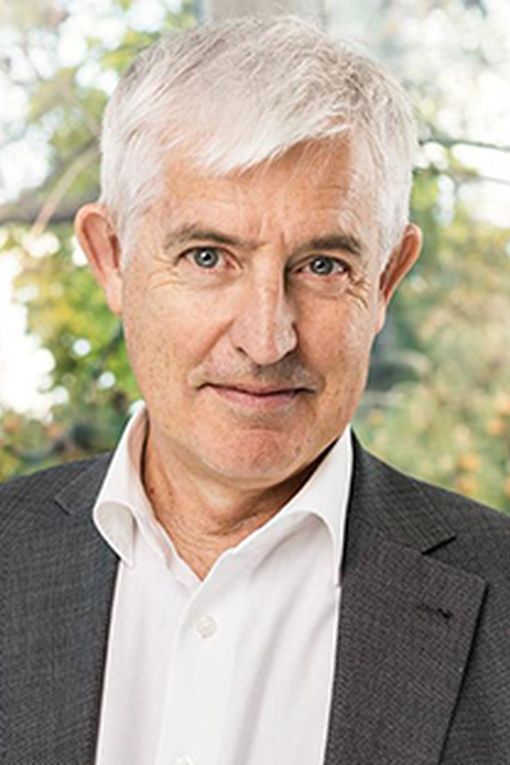
Chair of Theatre Studies at LMU Munich; Leverhulme Visiting Professor in Theatre at Central (2017)
Christopher Balme is a New Zealand-born scholar of theatre and performance studies based at LMU Munich. Since the late 1980s his research has been heavily focused on colonial and postcolonial theatre. This work led to his postdoctoral thesis which was initially published in German and later in English as Decolonizing the Stage (OUP 1999). Performing the Pacific (Palgrave 2007) looked at performative encounters in Oceania since first contact. He has also invested heavily in introductory books for students of theatre studies. An introduction to theatre studies in German was published in 1999 and is now in its 5th revised edition. An English adaptation was published with CUP in 2008 and has been translated into five languages.
Balme’s work has attracted major research funding from national and European funding bodies. He directed a six-year project on Global Theatre Histories funded by the German Research Society (DFG) and in 2016 he was awarded an ERC Advanced Grant for a project entitled ‘Developing Theatre: Building Expert Networks for Theatre in Emerging Countries after 1945’.
He is a past-president of IFTR and has edited the journal Theatre Research International. He currently edits the Journal Forum Modernes Theater, a peer-reviewed journal that publishes in both German and English and co-edits the online Journal of Global Theatre History. An active speaker, he gives keynotes around the world including recently at Tel Aviv, New Delhi, Malta, Heidelberg, Bangkok, Athens, Turin, Beijing and Guangzhou.
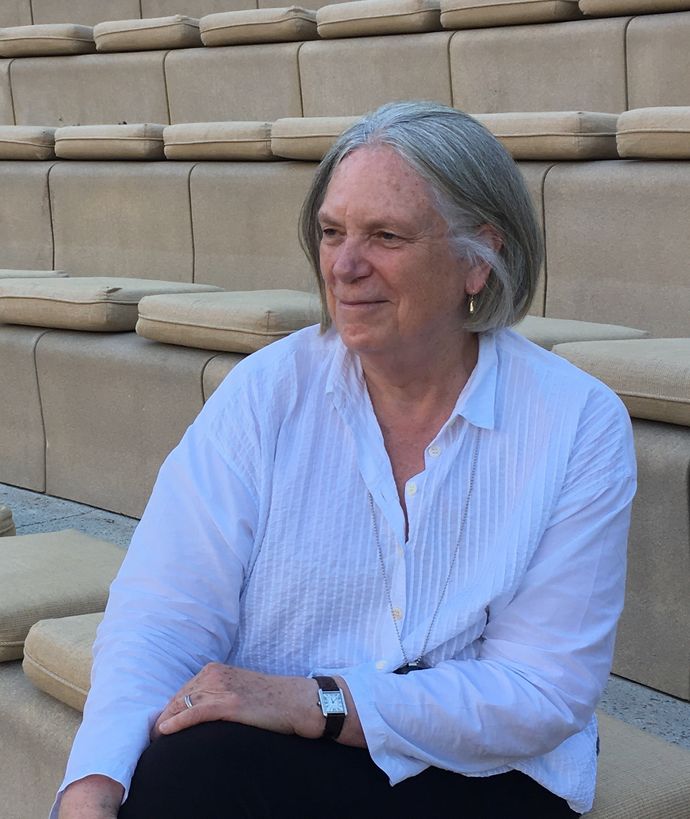
Professor of Theatre, Columbia University; Leverhulme Trust Visiting Professor in Theatre at Central (2018-19)
Anne Bogart’s Leverhulme Trust professorship facilitates a long-anticipated series of conversations on the histories and philosophies of actor training and the role of the director and coach. Over the past forty years, Professor Bogart has developed a reputation as one of the most important and urgent voices working at the intersection of theatre practice and academia; she commands respect as both a scholar and teacher as well as a director internationally, and has been the recipient of major awards including Guggenheim, Doris Duke and Rockefeller Fellowships as well as receiving the Career Achievement Award from ATHE in 1999. Cofounder of the SITI Company with Tadashi Suzuki in 1992, Bogart was one of the earliest American directors to insist on the importance of working across transnational practices and training. Building her work with SITI as well as through her long teaching career, Bogart has long insisted on the value of training and in-depth research as the basis of the theatre-maker’s art. Working with Mary Overlie and others at NYU in the early 1980s, Bogart focused on developing a theatre language that emphasizes the compositional aspect of the theatre work and incorporates a series of diverse influences to create an eclectic, unique and vivid postmodern approach to theatre. Viewpoints, which is now synonymous with her name, draws inspiration and bases from key training techniques and diverse sources, including Stanislavsky’s late emphasis on stage action, Overlie’s articulation of Viewpoints for postmodern dance and the work of a number of other contemporary theatre makers, including Robert Lepage, Robert Wilson and Meredith Monk. Bogart is one of the most significant international figures working in the US theatre today, and has shaped theatre scholarship for over four decades.
Alyson is a freelance director and dramaturg whose work spans a broad range of companies and venues in Australia, the UK and the US over the last 30 years.
She is Professor in Theatre at the Victorian College of the Arts, University of Melbourne, where she leads the dramaturgy strand of the Master of Theatre degree. Her research, artistic practice as a director, teaching and activism converge around gender and sexuality, particularly queer performance and dramaturgies and contemporary representations of HIV and AIDS. She has written widely on these areas, most notably co-editing the collections Queer Dramaturgies: International Perspectives on Where Performance Leads Queer (with Stephen Farrier, Palgrave, 2015) and Drama and Viral Dramaturgies: HIV and AIDS in Performance in the 21st Century (with Dirk Gindt, Palgrave, 2018). Alyson is visiting Central to direct the UK/European premiere of Lachlan Philpott’s play promiscuous/cities as part of the British Council’s UK/Australia Season. This also marks an expansion of her ongoing partnership with Professor Stephen Farrier, with whom she co-edited Queer Dramaturgies (Palgrave, 2015) and is co-editing a forthcoming (2023) special issue of Contemporary Theatre Review on queer performance. Alyson and Steve also collaborate on Feral Queer Camp, a project to take queer thinking about performance out of the academy and back into the queer community https://feralqueercamp.com/
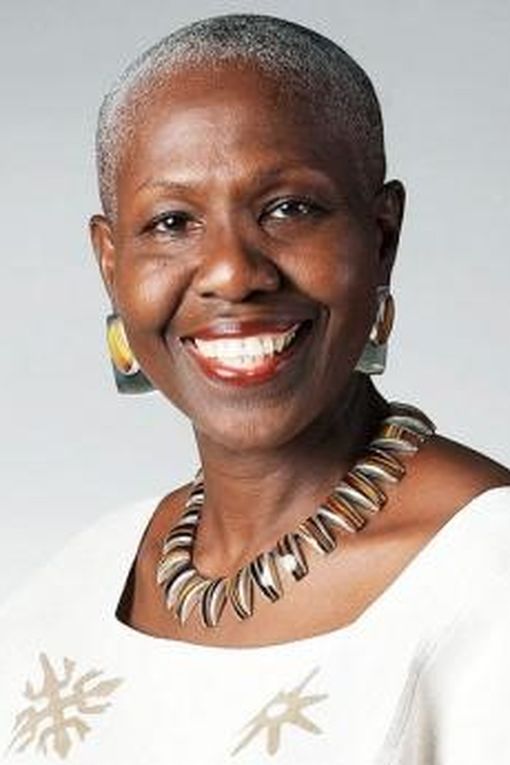
Professor Emerita of Literary and Cultural Studies at the University of the West Indies, Mona, Jamaica.
Carolyn has taught at the University of West Indies since 1980. She was instrumental in establishing the International Reggae Studies Centre in 1994 at the university, becoming its first coordinator in 1995; she also founded the annual Bob Marely lecture in 1997. Her publications include Sound Clash: Jamaican Dancehall Culture at Large and Noises in the Blood: Orality, Gender and the “Vulgar” Body of Jamaican Popular Culture. She is also the editor of Global Reggae, which collects together the plenary papers of the Global Reggae conference held in 2008. And, with Eleanor Wint, she co-edited Bob Marley: The Man and His Music (2003). She is also well known for her prolific media profile, co-hosting television shows such as Man and Woman Story and the public affairs programme Question Time on CVM television. In 2013, she was awarded the national honour of the Order of Distinction on Jamaica’s 51st Independence Day for her outstanding contribution to education.
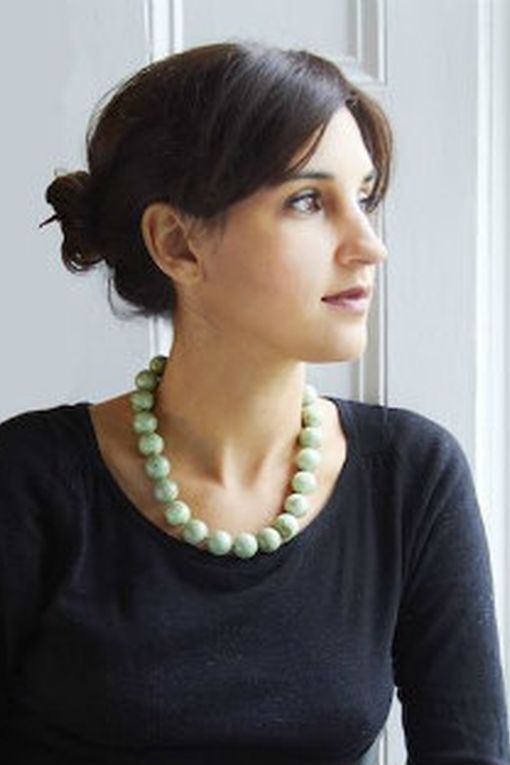
Dr Nadia Davids is a writer, theatre maker and Associate Professor in English at the University of Cape Town, South Africa
Writer
Nadia’s plays, At Her Feet, Cissie and What Remains have garnered various theatre awards and nominations (seven Fleur de Cap Theatre Awards, and Naledi and Noma nominations) and have been staged internationally (in Africa, Europe, The United States) at venues such as Market Theatre, Baxter Theatre, Southbank Centre, Fracsati Theatre and at festivals such as the Grahamstown National Arts Festival (2003, 2008, 2017), Afrovibes (2004, 2017) and the London Book Fair. Nadia was a part of the New York Women’s Project Playwright’s Lab (2008-2010) and has held writing residencies at the Ledig House (2012, 2015) and at Hedgebrook (2016). Her screenplay adaptation of her short story, The Visit won best South African Film Project at the 2012 Durban International Film Festival.
Her debut novel An Imperfect Blessing published by Umuzi, Random House was shortlisted for both the 2014 UJ Prize and the Pan-African Etisalat Prize for Literature and long-listed for the 2014 Sunday Times Fiction Award. It was named one of TIA’s best African novels, one of three of Ozy’s ‘Favourite New South African Books’ and Radio702’s 2014 ‘Book of the Year’.
In June 2017 Nadia was elected President of PEN South Africa.
Scholar
Nadia holds a PhD from the University of Cape Town and, as an A.W. Mellon Fellow, has been a visiting scholar/artist at the University of California Berkeley and at New York University. She lectured at Queen Mary University of London between 2009-2016 and is a 2013 recipient of a Philip Leverhulme Prize and an AHRC grant. In January 2018 she took up an Associate Professorship in the English Department at the University of Cape Town. Her academic work has appeared in The Drama Review, Safundi, The South African Theater Journal and Wasafiri and she has presented her research at Cambridge University, SOAS, U.C.Berkeley, New York University, the University of Cape Town, the University of the Western Cape and Edinburgh University. Her research work focuses primarily on stagings of post-apartheid and post-colonial memory and on theatre as a historiographic practice.
Other work
Nadia has presented and written work for the BBC, CNN, the Mail and Guardian, O Magazine, Marie Claire and The Brooklyn Rail, the Johannesburg Review of Books, she’s appeared at the Open Book Festival, the Abantu Festival, Franshoek Literary Festival, various Southbank Festivals and The London Book Fair.
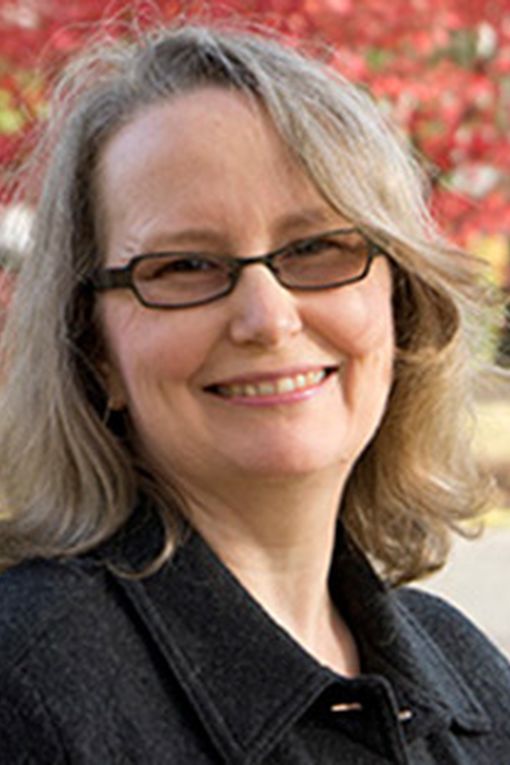
Barber Professor of Performing Arts and Professor of Theatre and English at Northwestern University, USA
Professor Tracy C. Davis is a specialist in performance theory, theatre historiography, and research methodology. She is Barber Professor of Performing Arts and Professor of Theatre and English at Northwestern University, USA and works with students in various programs, including English, Theatre and Drama, Performance Studies, Musicology, History, and Rhetoric. She is Director of the Graduate School’s Excellence in Doctoral Mentoring Initiative and former Chair of Northwestern University Press’s Editorial Board. In 2016 she joined the SSRC’s Advisory Committee for the Mellon-funded University-Based Dissertation Proposal Development Training Programs and the Advisory Board for the Marvin Carlson Center at the Shanghai Theatre Academy. Her active research projects are on nineteenth-century Liberalism, scenography, theatre and anthropology, and professional mermaids.
Davis’ most recent books are Uncle Tom’s Cabins: The Transnational Histories of America’s Most Mutable Book (University of Michigan Press, 2018), the six-volume Cultural History of Theatre(Bloomsbury UK, 2017) and The Broadview Anthology of Nineteenth-Century British Performance (Broadview, 2012).
Tabs 2
- Robert Icke
- Nike Jonah
- Assoc Prof Rosanne Kennedy
- Prof. Kareem Khubchandani
- Dr. Ruth Little
- Dr. Claire MacDonald
- Dr. Rosemary Malague
- Dr. Maurice Hamington
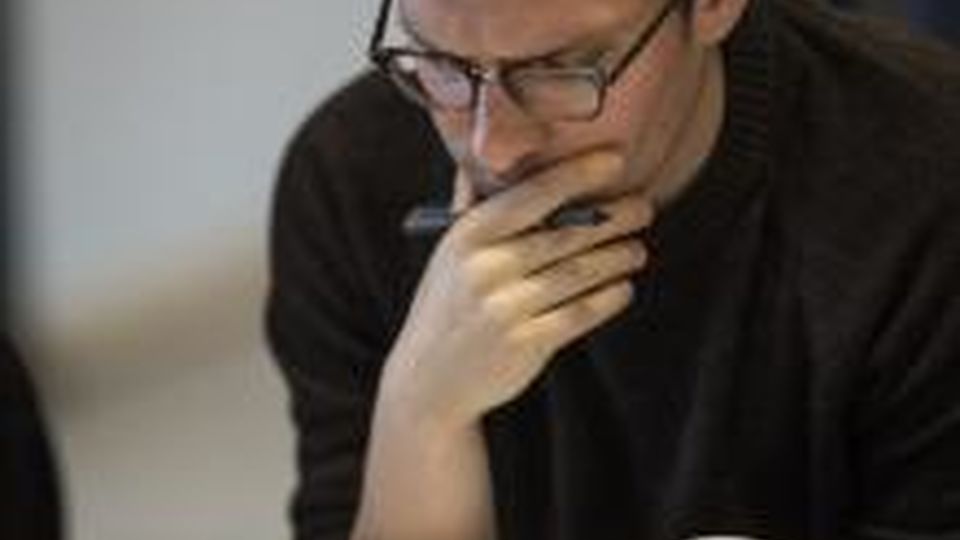
Robert Icke is a writer and director.
He is currently Artist in Residence at International Theatre Amsterdam supported by the Philip Loubser Foundation, where his work includes Oedipus (2018) and After Nora (2020). In 2018, he made his debut in Germany with Orestie (Schauspiel Stuttgart) for which he was awarded the Kurt-Hübner-Regiepreis.
He was the Associate Director of the Almeida from 2013-19, where his work included adapting and directing The Doctor (planned for the West End), The Wild Duck, Mary Stuart (also West End and national tour), Uncle Vanya, Oresteia (also West End) and 1984 (co-created with Duncan Macmillan, also Broadway, West End, national and international tours). His other productions as director include Hamlet (also West End and screened on BBC2), The Fever and the European premiere of Mr Burns. He is a Fellow of the Royal Society of Literature, has won the UK Theatre, the Critics’ Circle and (on two occasions) the Evening Standard Awards for Best Director, and is the youngest ever winner of the Olivier Award for Best Director.
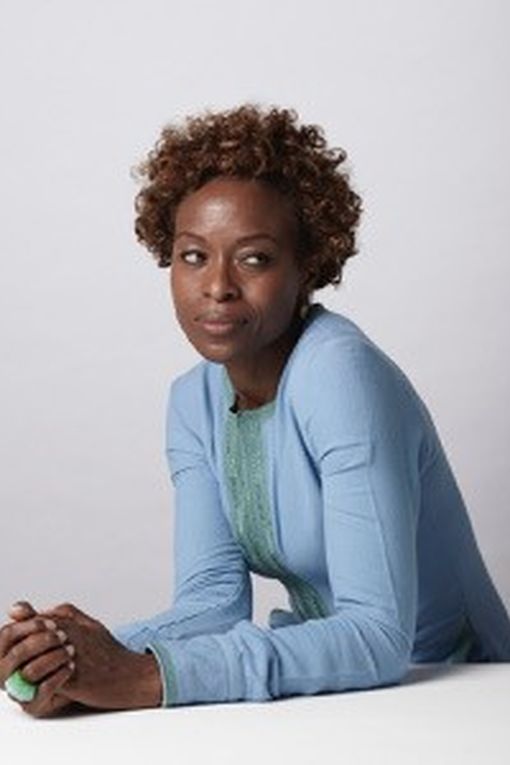
Nike Jonah works in strategic development across the cultural and creative industries worldwide. Since the early 90s, she has developed innovative approaches to a number of successful music, fashion, television, design, visual and performing arts projects for several influential organizations in Africa, America and Europe.
Nike balances her time between various roles in the cultural sector. She is Director of Connecting Dots, an arts consultancy that works with a range of clients across the arts and creative field. Nike is the new Director of Afrovibes UK, a cross-arts interdisciplinary arts festival that takes place across several venues in 2-3 cities in England and is also developing Pan African Creative Exchange (PACE) in partnership with the Vrystaat Arts Festival in Bloemfontein, South Africa. PACE is an institution for African-based artists and arts organizations who wish to undertake international touring, increase their profile and develop national and international partnership opportunities.
Between 2008 and 2012, Nike led the highly acclaimed Arts Council England’s Decibel Programme, which was designed to support and increase the profile of African, Asian and Caribbean artists in England. Through this, Nike delivered an ambitious programme of events and activities that included the showcasing of artists and companies, strategic bursaries and sector-specific communication aimed to effect positive, sustainable change across the arts sector for diverse artists in the UK.
Additionally, Nike has worked with several international biennales as an advisor and associate producer for a number of notable festivals and conferences across the world. Events include the Venice Biennial, Italy; Documenta, Germany; World Festival of Black Art and Culture, Senegal; Muenster Skulptor Festival, Germany; Grahamstown Festival, South Africa; World Summit, Australia; Istanbul Biennale, Turkey.
Recent clients include: One Dance UK, Duckie, Upswing, Dutch Ministry of Culture, Vrystaat Festival, Professional Association of Canadian Theatres (PACT), Culture &, Anxiety Arts Festival; Flamingo Group; British Council; Vrystaat Arts Festival; IPAY; Real Creative Futures; Mental Health Foundation; Tamasha Theatre; Landor, Kiosk – HQ; Westway Development Trust; Urbanflo; DaDaFest; Cultural Co-operation and Powerful Media; Arts Council England.
In 2010, Nike was acknowledged as a Woman to Watch and an “outstanding leader in the diversification of the arts” by a panel of the UK’s creative industry luminaries.
Nike is a Trustee on Boards of the European Cultural Foundation in the Netherlands, the Birmingham Contemporary Music Group and The Bush Theatre.
Associate Professor Rosanne Kennedy is an interdisciplinary Humanities scholar in Gender, Sexuality and Culture and Literary Studies at the Australian National University.
Working at the intersection of cultural memory studies, trauma studies, life writing, and human rights, her research explores mediations of testimony in cultural and legal contexts including trials, human rights, memoir, literature, film and visual art. She has supervised over twenty-five PhD students and has won University awards for postgraduate supervision and for undergraduate teaching. Co-founder of the MemoryHub@ANU, she is leading a transnational project on Decolonizing Memory Studies and is currently a member of the COST Action network, Slow Memory: Transformative Practices for Times of Uneven and Accelerating Change. She has been a Fulbright Fellow and has held fellowships at Duke University Law School, Cambridge University, Konstanz Centre of Excellence and Utrecht University. Her research has been published widely in journals including Memory Studies, Signs, Comparative Literature Studies, Studies in the Novel, Biography and in book chapters. Her books include World Memory: Personal Trajectories in Global Time (co-edited with Prof Jill Bennett, 2003) and Feminist Legal Theory (co-edited with Prof Kate Bartlett, 2nd ed, 2018).
While visiting the Royal Central School of Speech and Drama, Rosanne will be working on her project, Moving Testimony: the Survivor’s Voice and the Transnational Cultures of Human Rights. Revisiting claims from the 1990s that we live in “an era of testimony” (Felman and Laub, 2002), the book explores the dynamic figure of the survivor as a carrier of memory from the private to the public sphere, and across local and national borders, from a post-Holocaust era to #MeToo and Black Lives Matter. Through readings of iconic testimonial texts from a range of context and sites, including human rights inquiries, memoir, films and literary texts, it engages critically with an emerging consensus that the international regime of human rights has focused too exclusively on the individual (whether perpetrator or victim) at the exclusion of larger ambitions for facilitating justice and/or economic redistribution.
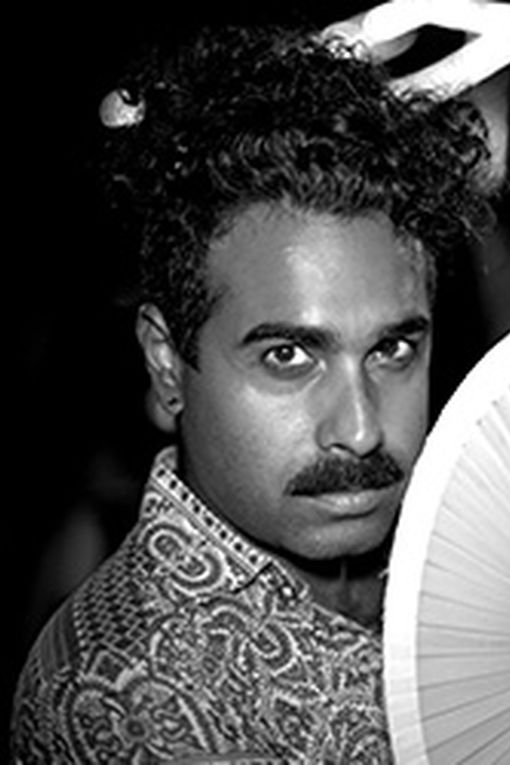
Mellon Bridge Assistant Professor of Theatre, Dance, and Performance Studies, and Women’s, Gender, and Sexuality Studies at Tufts University
Kareem holds a Ph.D. in Performance Studies from Northwestern University, and previously served as the inaugural Embrey Foundation Postdoctoral Fellow at the Center for Women’s and Gender Studies at the University of Texas at Austin.
Kareem is developing several book projects include: Ishtyle: Accenting Gay Indian Nightlife (forthcoming, U. Michigan Press), Queer Nightlife (co-edited with Kemi Adeyemi at U. Washington and Ramón Rivera-Servera at Northwestern U.), and Auntologies: Queer Aesthetics and South Asian Aunties. He has published in SAMAJ; Scholar and Feminist Online; Transgender Studies Quarterly; Journal of Asian American Studies; The Velvet Light Trap; Theater Topics; Theatre Journal; The Wiley Blackwell Encyclopedia of Gender and Sexuality Studies; The Global Encyclopedia of GLBTQ History; Queer Dance (Oxford UP); Pop Empires (U Hawaii Press); and Queering Digital India (Edinburgh UP).
Kareem is also a performance artist, working in drag, storytelling, body art, theater, and digital media. His videos have been screened at the Mississauga South Asian Film Festival, Austin OUTsider multi-arts festival, Hyderabad Queer Film Festival, and San Francisco 3rd i film festival. As his alter ego LaWhore Vagistan he has performed at the Austin International Drag Festival, Mustard Seed South Asian Film Festival (Philadelphia), The Asia Society (NYC), AS220 (Providence) Queens Museum, Jack Theater (Brooklyn), Bronx Academy of Arts and Dance, Not Festival (Riverside), and Links Hall (Chicago).
Ruth Little is a theatre and dance dramaturg, a teacher and writer.
Her research and teaching in ecologies of performance is informed by two decades’ experience of commissioning, developing and curating new work in partnership with community groups, academics, and artists across all forms. She has led workshops and art-science expeditions nationally and internationally. After receiving her PhD from the University of Cambridge, she lectured in English literature at the University of Sydney, and was literary manager at Out of Joint, Soho Theatre and the Royal Court, and artistic associate at the Young Vic.
Ruth is dramaturg for Akram Khan Company (Gnosis, Vertical Road, Desh, iTMOi, Until the Lions), associate director of Cape Farewell London, associate artist at Perth International Arts Festival. She has worked with English National Ballet (Akram Khan: Dust, Giselle), Banff Arts Centre, Sadlers Wells, Spitalfields Festival, Barbican, National Theatre Connections, Fuel, Siobhan Davies Dance, Sheffield Theatres, La Monnaie/De Munt (Sidi Larbi Cherkaoui/Nick Cave: Shell Shock), Northern Ballet (Jonathan Watkins: 1984), Dance Umbrella (Le Patin Libre: Vertical Influences). Publications include The Young Vic Book (Methuen, 2004), The Royal Court Theatre Inside Out (Oberon, 2007), ‘The Slow Art of Contemporary Expedition: Islandings’ (University of the Arts, 2012), ‘Art, Place, Climate: Situated Ethics’ (Springer, 2014). Guest editor, Dance Umbrella ‘Definite Article’ 2015-16.
Winner of 2012 Kenneth Tynan Award for dramaturgy.
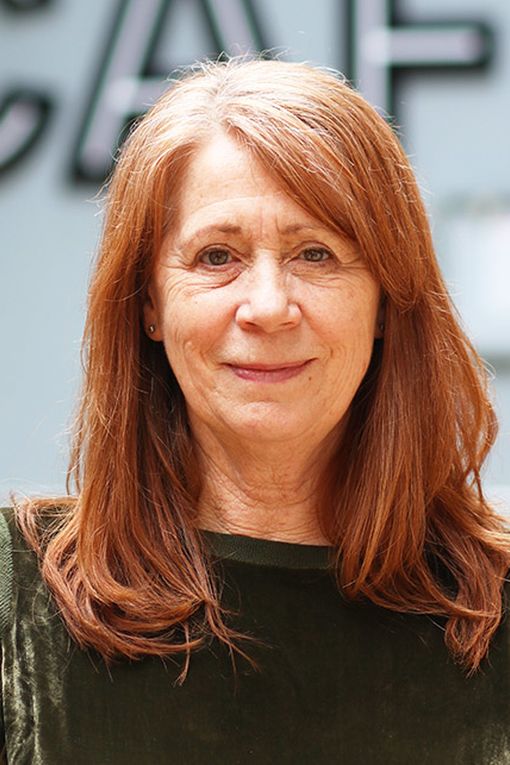
Professorial Fellow
Born in Beckenham, South London, I moved to Scotland in my teens and found my passion watching productions at the Citizens Theatre in Glasgow, then under the inspired direction of Giles Havergal, Robert David MacDonald and Philip Prowse. My first theatre job on leaving university was in the costume department at the Citizens. After university in Leeds I co-founded Impact Theatre Cooperative, and worked for ten years as a performer and maker. I moved from theatre making to a Judith Wilson Fellowship at Churchill College, University of Cambridge, and then into teaching and writing, first in the UK, and then in Washington DC from 1998 to 2005. I have taught and held fellowships at Mount Holyoke College in Massachusetts, on the postgraduate programme in Australia at the Victorian College of the Arts, the School for New Dance Development in Amsterdam, Dartington College of Arts, De Montfort University, Goldsmiths College, University of London, at the University of Maryland and George Mason University in Virginia. Since my return from the USA I have held positions as Director of the International Centre for Fine Art Research at University of Arts London and, most recently, Professor II at the Norwegian Theatre Academy, where I helped to develop postgraduate research and where I remain an Associate Professor of Research.
I am one of the co-founders of the interdisciplinary arts journal, Performance Research, editing special editions Congregation (2009), Generation (2005), Correspondence (2004), Voices (2003), On Editing (2002), Departures (2001) On Silence (1999), On Refuge (1997), Letters from Europe (1997), On Risk (1996) and The Temper of the Times (1996). I am a Contributing Editor to PAJ: A Journal of Performance and Art. My practice led PhD, Between Writing and Performance, explored my own journey between theatre writing and narrative fiction. For three years in the early 1990s I directed the Cambridge Darkroom Gallery, producing a programme of photography, video and performance. I have been a National Endowment for the Arts panel member in the USA; a member of the ARHC Peer Review College in the UK, have worked for the Open University Validation Service in Europe, and been a consultant and advisor to Higher Education programmes in the Netherlands and Scandinavia as well as the US and the UK. I have supervised and examined doctoral projects in the UK and in the kundstipendiat system in Norway. I am on the publications committee of the Live Art Development Agency, and am a Board member of Unfinished Histories and Vincent Dance Theatre.
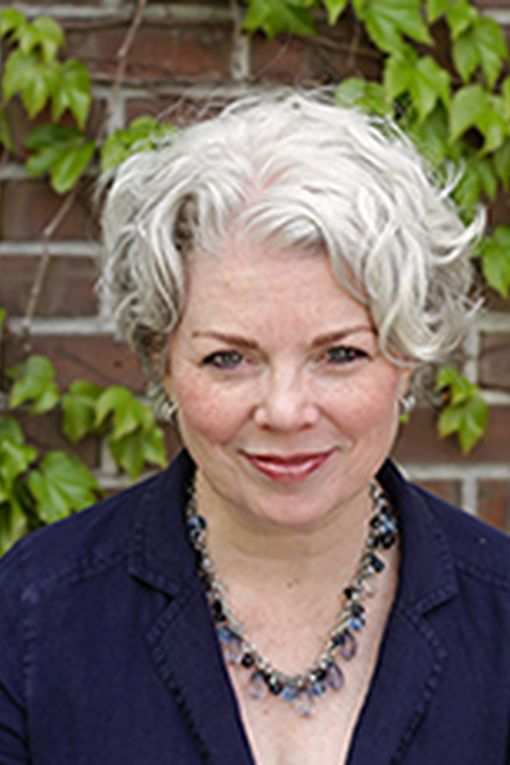
Senior Lecturer in Theatre Arts, Annenberg Center for Performing Arts, University of Pennsylvania
I am delighted to visit Central from the US, where I teach and direct in the Theatre Arts Program at the University of Pennsylvania. My book, An Actress Prepares: Women and “the Method” (Routledge 2012), is the first full-length feminist examination of American, Stanislavsky-based actor training traditions. In that work, I ask: “What happens to women in Method actor training?”, exposing sexist patterns, and reclaiming empowering techniques. A related inquiry, “Stanislavsky’s System and Women: A Feminist Reading of New Translations,” is collected in the Routledge Companion to Stanislavsky (2013).
The natural extension of that work is to explore what happens after training: How might professional actors—and directors—reinterpret texts with feminist purpose? One such collaboration is analyzed in my essay “Theatrical Realism as Feminist Intervention: Katie Mitchell’s 2011 Production of A Woman Killed with Kindness,” published in Shakespeare Bulletin (Winter 2013). I am currently working on a project entitled “Attention Must Be Paid: Staging Linda Loman.” Death of a Salesman is regularly revived—and Linda is a problematic character. This work will be a comparative examination of historical portrayals, including Dame Harriet Walter’s revelatory interpretation at the RSC last year. Other ongoing projects include a feminist portrait of master teacher Stella Adler, as well as co-edited collection of work by contemporary American women playwrights.
The legendary Royal Central School of Speech and Drama has long loomed in my imagination, and I am eager to learn more about actor training at one of the UK’s leading drama schools. I hope to visit classes and speak with students and teachers; I am also excited to engage with researchers and their projects, and with my hosts Gilli Bush-Bailey and Tom Cornford. (An added bonus, of course, will be to see as much London theatre as I can!)
I hold a PhD in Theatre from the Graduate Center of the City University of New York, an MA in Theatre from Villanova University (where I was an Acting Scholar), and a BA in both English and Studies in Theatre and Dramatic Literature from Dickinson College. I received actor training at Circle-in-the-Square Theatre School and HB Studio, and am a member of Actors’ Equity Association.

Professor of Philosophy and Executive Director of University Studies, Portland State University, USA
My work focuses on developing a robust notion of an ethic of care. So named in the 1980s, care ethics is a relational approach to morality that emphasizes the significance of context and emotion, particularly empathy, over more traditional ethical preoccupations with rules or the moral calculus of consequentialism. Originally, developed by feminist theorists and derived from women’s experience, care ethics has achieved widespread academic attention in philosophy, political theory, health care, geography, and business ethics. With this expanded consideration has come efforts to fit care ethics into mainstream and analytic frameworks of normative ethical theory. I have argued that although such an approach has merits, it limits the radical potential of care to address the interconnected human experience. In my estimation, exploring the embodied, aesthetic, and performative aspects of caring can yield a thicker understanding of caring including its nuance and power. Accordingly, I have suggested that care not only has ethical implications but also significance for aspects of who we are and how we come to knowledge. Given this context, exploring the intersections of care ethics and performance philosophy, experiential learning, emotional labour, and aesthetic experience together with scholars Amanda Stuart-Fisher and Tony Fisher is particularly energizing for me. The performing arts engage the moral imagination in rich ways that analytic philosophy cannot, but that notion does not always hold sway with mainstream theorists. I am interested in having conversations about how philosophy and performance can co-create the moral understanding of care. Furthermore, the idea that care is embodied and performative suggests that we must dramatically reconsider how we teach ethics to include its aesthetic dimension.
My research and writing reflects the development of the ideas described above as well as bringing the language of care to a variety of human endeavours. Since the monograph Embodied Care (1995), I have edited or co-edited a number of volumes engaging care ethics including Care Ethics and Political Theory (2015), Applying Care Ethics to Business (2011), Feminism and Hospitality (2010), Socializing Care (2006). Articles in the trajectory of performance philosophy include “Care Ethics and Confronting Intersectional Difference through the Body,” in Critical Philosophy of Race 3:1 (2015); “A Performative Approach to Teaching Care Ethics,” Feminist Teacher 23:1 (Fall 2013); “Care Ethics and Corporeal Inquiry in Patient Relations,” International Journal of Feminist Approaches to Bioethics 5:1 (Spring 2012): 52-69; “Care Ethics, John Dewey’s ‘Dramatic Rehearsal’ and Moral Education,” Philosophy of Education Yearbook 2010. (Spring 2011); and, “The Will to Care: Performance, Expectation, and Imagination,” Hypatia, 25:3 (Summer 2010) 675 – 695.
I hold a Ph.D. in Philosophy from the University of Oregon as well as a Ph.D. in Religion and Social Ethics, an MBA, and a Graduate Certificate in the Study of Women and Men in Society from the University of Southern California. For further information, visit: https://pdx.academia.edu/MauriceHamington
Tabs 3
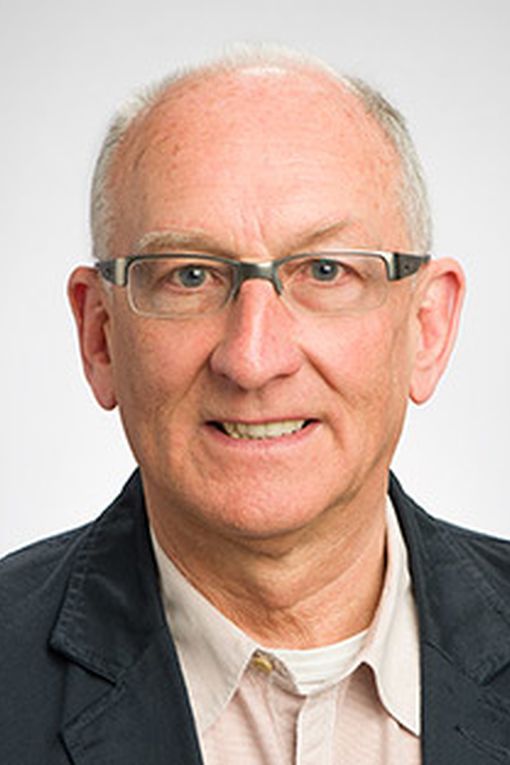
Professorial Fellow
Following a period of actor training at Mountview Theatre School, I studied at the universities of Kent, Manchester and Warwick. My first degree in Literature/Philosophy (Kent) was followed by Masters research in Shakespeare and Renaissance Theatre (Manchester) and ultimately doctoral research in TV Drama and postmodern aesthetics (Warwick). My early career involved acting and directing alongside teaching in F/HE.
I joined Central in July 2010 to support research development and was appointed Director of Research in June 2011. Retiring from this role in December 2014 following a highly successful REF result, I have since been engaged in consultancy. My work championing “practice as research” (PaR) is particularly relevant in these contexts but, over a forty-year career, I have taught, and published widely on, theatre, media and arts education topics.
Prior to Central, I held a range of posts in the HE sector. I am an Emeritus Professor of Manchester Metropolitan University where for over a decade I was a member of the Senior Staff, finally involved in research management.
I have been an invited keynote speaker at a range of international conferences and was an invited member of the Drama, Dance & Performing Arts RAE sub-panel in 2007-08 and the Drama, Dance, Performing Arts & Music REF sub-panel 2013-14.
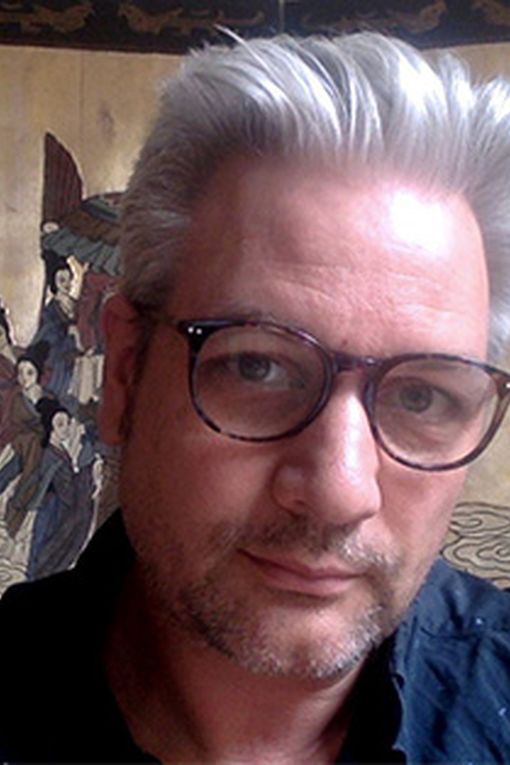
Paul is Associate Professor in Theatre Studies at the University of Melbourne, Australia.
He researches contemporary theatre internationally, and Asia-Pacific performance cultures. He is the author of Theatre & Human Rights (Palgrave, 2009), and Real Theatre: Essays in Experience (Cambridge University Press, 2019). From 2013-18 he was first Associate and then Senior Editor of the journal Theatre Research International, and has published widely in journals such as Contemporary Theatre Review, TDR, Theatre Journal, and Performance Research.
At the moment, he is focused on a few distinct research projects. He is particularly interested in factoring the practicalities of theatre-making and -watching into performance scholarship, and asking how this changes what scholarship should focus on. This has led him to an interest in what mainstream theatre - and often-overlooked combination of art and industry that sits at the centre of many people’s experiences of what theatre is. A second research interest is in the kinds of performances that happen on islands, and the reasons they take the form they do. This builds on Paul’s experiences of living and traveling in Southeast Asia, and currently focuses on a number of specific Asia-Pacific islands and island nations: Negros (Philippines); Tarawa and Marakei (Kiribati); Bali (Indonesia); Singapore; and Australia. A third project, ‘Mousetraps’, is on theatre and authoritarianism, and runs the gamut from Hamlet and Agatha Christie’s eponymous, long-running murder-mystery, to lab tests on mice, and social control in illiberal societies.
Originally from the UK, Paul lived in Singapore from 1996-2014, and from 2007, he was Assistant Professor of Theatre Studies at the National University of Singapore. While in Singapore, Paul was also co-artistic director, with Kaylene Tan, of Spell Seven Performance Club, a theatre company.
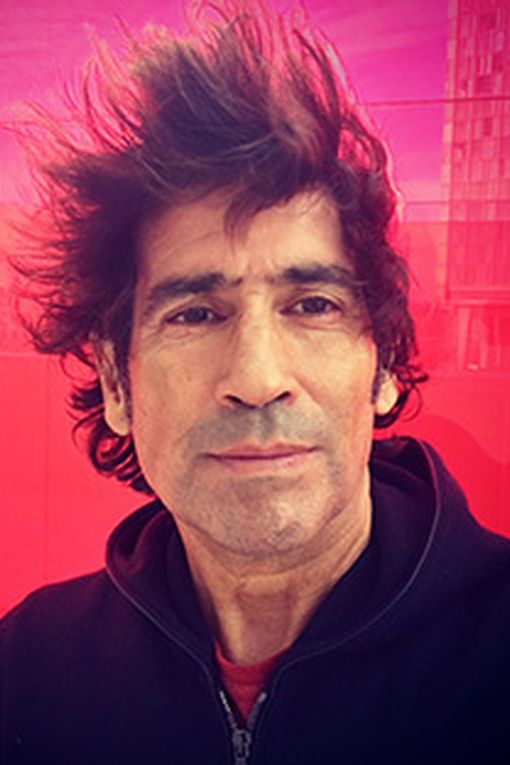
Professor of English and American Studies at the University of Southern California.
He is the author of two books: Acts of Intervention: Performance, Gay Culture, & AIDS and Performance in America: Contemporary US Culture and the Performing Arts, and several edited volumes. Professor Román’s research focuses on theatre and performance studies, with an emphasis on contemporary US culture; American studies, with an emphasis on race, sexuality, and the performing arts; Latina/o studies with an emphasis on popular culture; and queer studies with an emphasis on archival practices, subcultural histories, and artistic production.
Professor Román’s current projects include an edited volume of essays on the plays of Tarell Alvin McCraney and an edited volume on Taylor Mac’s 24 Decade History of Popular Music. He is also currently working on two book-length projects, Reviving Broadway, on the cultural politics of Broadway from the 1930s to the present, and Remembering AIDS, on the early AIDS years in the United States.
He is a former editor of Theatre Journal and a founding editorial member of GLQ. He’s served as the scholar-in-residence at the Mark Taper Forum in Los Angeles under the leadership of founding artistic director Gordon Davidson and he was the chair of the board of directors at Highways Performance Space in Los Angeles under the leadership of founding artistic director Tim Miller. He’s won multiple awards for his scholarship, teaching, and service.
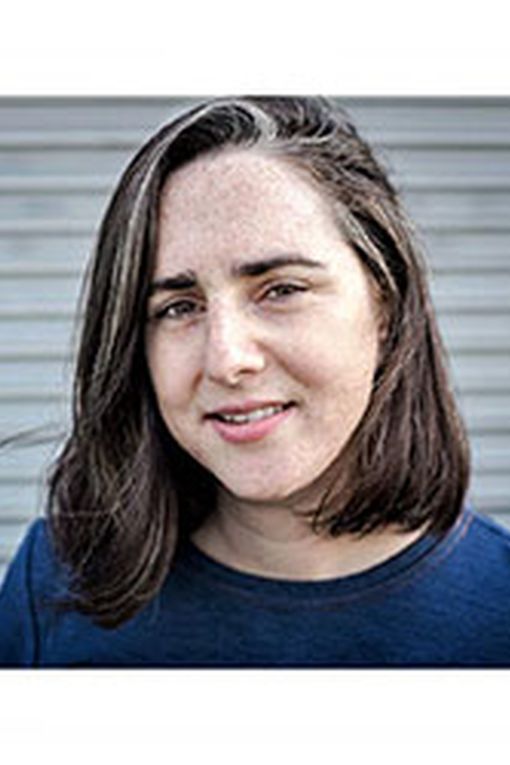
Joanne Rosenthal is a freelance curator and museum consultant with an interest in producing social and cultural history exhibitions that deal with ‘difficult’ pasts and marginalised narratives. Her museological interests lie in the politics of display, identity and collective memory.
Previously Chief Curator and Head of Exhibitions at Jewish Museum London, Joanne was responsible for producing some of the museum’s most critically-acclaimed exhibitions. Her most recent exhibition, Jews Money Myth, won the UK Museums Association Museums Change Lives award in 2019. The exhibition historicised associations of Jews and money, from Judas to Trump, interrogating notions of wealth, power and dispossession. Other exhibitions include Blood: Uniting and Dividing, Designs on Britain and Through a Queer Lens: Portraits of LGBTQ Jews, produced in collaboration with queer visual artist Ajamu.
Joanne is a research partner in the AHRC-funded project Staging Difficult Pasts - a collaboration between Central School of Speech and Drama, Royal Holloway and various other institutions. For this project she worked with the Parque de la Memoria - Monument to the Victims of State Terrorism in Buenos Aires to explore connections between her curatorial practice and cultural memory in post-dictatorship Argentina.
Joanne is currently curating an exhibition for an AHRC-funded project by the School of Politics and International Relations at Queen Mary University of London which explores the story of the ‘Yemenite children affair’ - in which thousands of Yemenite, Middle Eastern, and Balkan children were forcibly separated from their parents in the years surrounding the establishment of the state of Israel. The exhibition is due to open in April 2021 at the Brunei Gallery, SOAS.
Her most recent project is based on a fascinating, rare archive documenting the life and work of her aunt - a straight housewife who escaped life in the traditional Jewish community of North Manchester as ‘Avril A’, a highly eccentric and beloved performer in the city’s gay scene in the ‘80s and ‘90s.
Joanne has served on various museum advisory boards and was a board member of the Association of European Jewish Museums from 2013 to 2018. Before moving into the museum world she worked at Arts Council England on projects that brought artists into schools to develop new approaches to creativity in formal education. Her curatorial practice has been enriched by academic collaborations and she is deeply committed to developing opportunities for collaborative working across the museum and academic worlds.
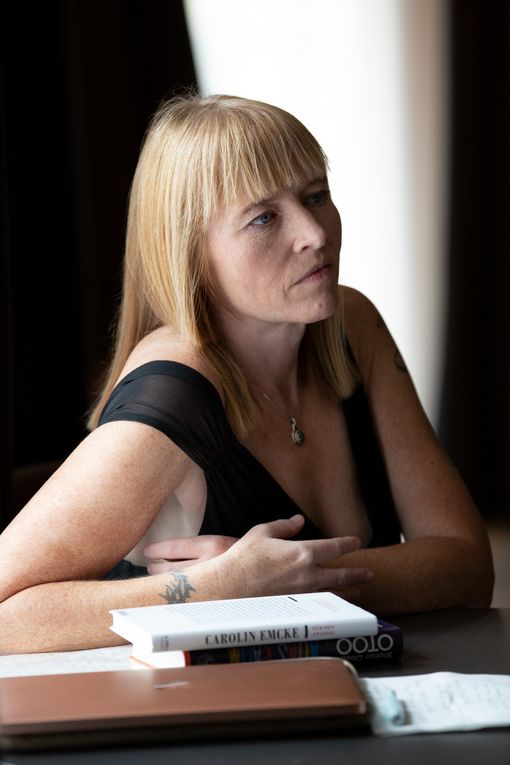
Yana Ross is a cultural nomad.
Since age 5 she has been traveling through a vast variety of countries and cultures, absorbing experiences and adapting to various conditions of life and work. Her artistic passion is digging deep into a foreign culture to unveil a taboo subject which often is invisible to the locals. She then explores the themes in collaborative and improvisational methods often based on classical texts but skewed to transmit only the main subject of research. Her Swedish Uncle Vanya took on ideas of “forced” inheritance and gender equalities, Our Class in Vilnius with local history of genocide and Icelandic “Salka Valka” with a subject of incest and sexual child abuse in a local society. All of her international productions since 2013 have been awarded Best Director award in respective countries. Ross is the first female director to work on legendary Volksbuehne stage in Berlin (Macbeth 2008) and first and still the only female director who won the Golden Cross for best performance in Lithuania (2014, 2019) She was part of the artistic team at Schauspielhaus Zurich where during her 3-year tenure she shaped and navigated a state institution together with other seven artists. Since 2023 she embarked on a long-term collaboration with Berliner Ensemble.
Tabs 4
- Dr. Nisha Sajnani
- Dr. Sarah Sigal
- Dr. Kim Solga
- Dr. Priya Srinivasan
- Caridad Svich
- Prof. Joanne Tompkins
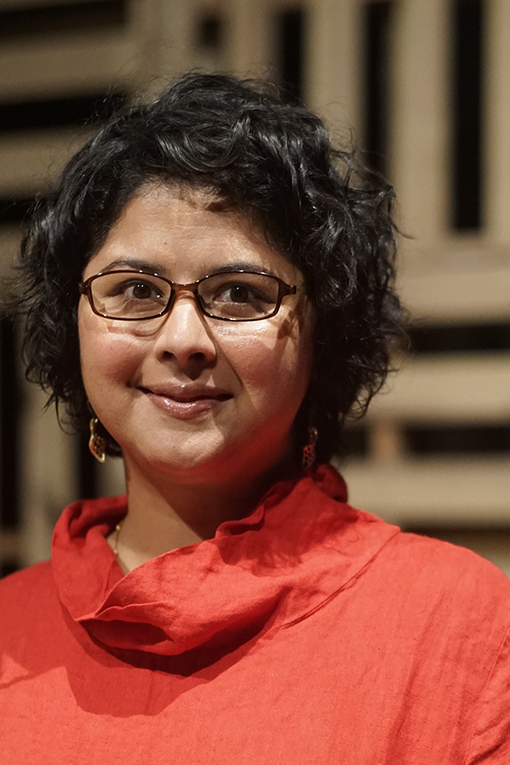
Dr Nisha Sajnani is the Director of the Program in Drama Therapy and the Theatre & Health Lab at New York University. She is a founding member of the World Alliance of Drama Therapy and the Editor of Drama Therapy Review.
I am a scholar of drama therapy, applied theatre, embodied research, and critical theory who has been interested in the interplay of the affective and effective in cultural practice that has long been at the core of research at Central.
My research on the relationship between theatre and trauma in clinical practice resulted in a co-edited volume of essays (Trauma-Informed Drama Therapy, 2014). I have published several articles and chapters that bring a critical lens to the arts therapies including two special issues for The Arts and Psychotherapy (2012) and Drama Therapy Review (2016). I have also advanced scholarship on the role of improvisation in performance research that appears in the Journal of the Applied Arts and Health, Canadian Theatre Review, and Remembering Mass Violence: Oral History, New Media and Performance (2014).
I continue to be interested in the relationship between aesthetics, affect, and care and the role of improvisation and performance in stimulating discovery and addressing concerns related to difference, identity, migration, and place. This has taken the form of several artistic research collaborations including the Living Histories Ensemble (Montreal Life Stories Project, 2007-2012), Lives That Matter on racism and hashtag activism on college campuses (2015), Mapping Home Amidst a Global Crisis of Place, a photography exhibit on sustainable global mental health with Oscar Palacio (2016), Assemblage, an online exhibit on displacement for Europe Now (2017), as well as essays for Home: An Imagined Landscape (2016), and for Manifesto with the Harvard Program in Refugee Trauma (2018).
I direct several research initiatives through the NYU Theatre & Health Lab that advance the poetics of playmaking and performance in psychological, social, and public health. Current collaborations examine issues related to Parkinson’s disease, addiction, HIV related stigma, and aging. My current book projects include a co-written book on intercultural and intersectional dramatherapy, and a co-edited international handbook on theatre, improvisation, and wellbeing.
Finally, as the co-founder of the Critical Pedagogy in the Arts Therapies forum and journal, I look forward to collaborating with Central on issues pertaining to diversity, equity, and inclusion in pedagogy and practice. This forum invites guest writing from educators and students alike.
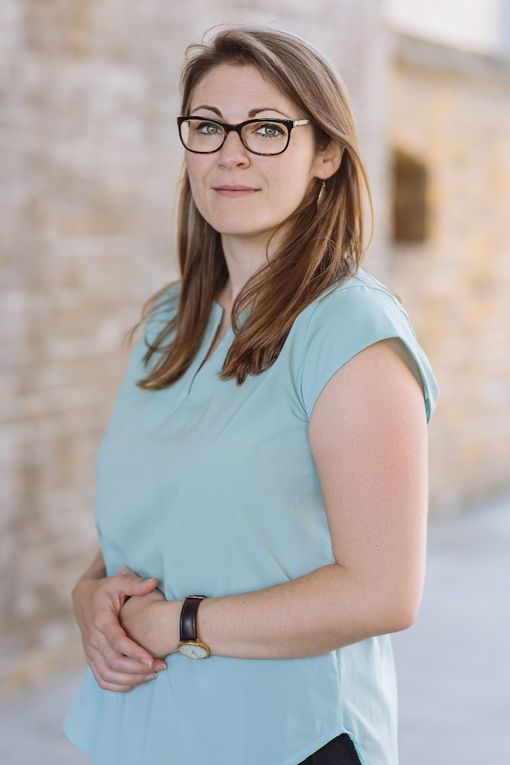
Originally from Chicago, Dr Sarah Sigal is a writer, dramaturg, director and researcher working across new writing, adaptation, site-specific theatre, film and fiction. She has a BA in English Literature and Theatre Arts from Gettysburg College and an MA in Writing for Performance from Goldsmiths University of London, where she completed a PhD in theatre and performance. She is an Associate Fellow of the Higher Education Academy. She has taught at numerous British universities as an associate lecturer and is the author of Writing in Collaborative Theatre-Making (Bloomsbury, 2016).
She is a Dramaturgs’ Network Board Member and an Associate Fellow at the Birkbeck Centre for Contemporary Theatre Research. She was previously the Live Performance Programmer at JW3 (2016-2019), a LABA Fellow at the 14th St Y in New York (2019-2020) and a member of the BBC Writersroom (2013-2014). Playwriting credits include: Vanishing (Camden People’s Theatre), Agent of Influence (Edinburgh Fringe & National Tour) World Enough and Time (Park Theatre), The Odyssey (The Albany), Alice’s Adventures in the New World (Old Red Lion & National Tour) and Dogfight (Arcola). She has recently directed her first short film No Caller and her first novel The Socialite Spy will be published in October 2023 by Lume Books. She is currently developing an adaptation of George Eliot’s Daniel Deronda.
Her main focus in practice and research is dramaturgical innovation and flexible uses of textual intervention; much of her process as a writer is centred around understanding the mechanics of collaboration and discourse as strategies for theatre-making. Over the years, she has worked within a number of authorial models of collaborative theatre-making, in addition to her solo-authored work. The kinds of subjects that interest her are contemporary politics through historical parallels, power structures, gender norms, idiosyncrasies of human behaviour and the Jewish diaspora.
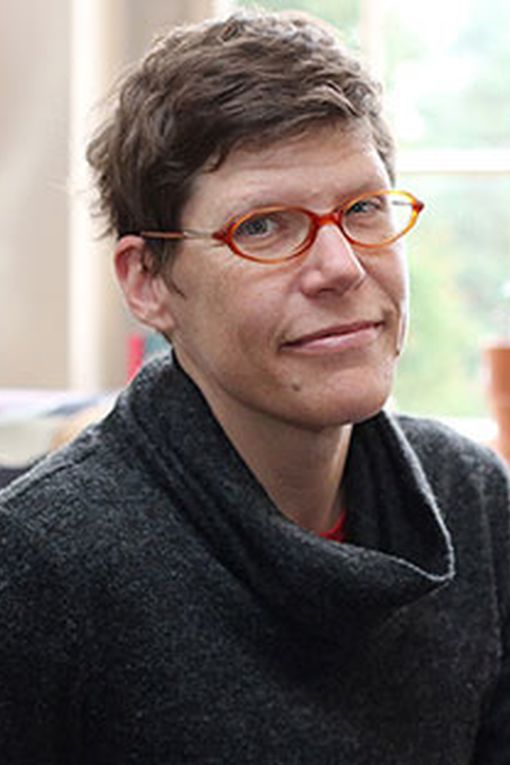
Associate Professor of Theatre Studies, Western University, Canada
I am a scholar of contemporary theatre and performance, urban performance studies, and feminist performance theory and practice who has long had research interests in the kinds of practical labour that form the heart of Central’s pedagogical remit. My research on “emotional realist” acting and directing techniques with early modern theatre scholars Roberta Barker and Cary Mazer has resulted in a play anthology, a volume of essays (both 2012), as well as a special issue of Shakespeare Bulletin (2013); I have also published independently on the Stanislavsky-based work of Katie Mitchell (2008) and the Stratford Shakespeare Festival (in Stratford, Ontario, 2010). My current book project, Realism After Neoliberalism, looks specifically at the nature of affective labour on stage and off, and asks questions about the social and political efficacy of realist dramaturgies alongside realist acting praxis as techniques for politicizing the work of “the cultural industries” under neoliberalism in Britain, Europe, and the Americas.
From 2012 through 2014 I taught in the Department of Drama at Queen Mary, University of London; I am now based in Canada, and am embedded in Toronto’s theatre culture as well as the larger networks of the Canadian theatre and performance academy. I still maintain actively my many British connections with scholars as well as artists, however, and as a Senior Visiting Research Fellow at Central I hope to facilitate transatlantic discussions and enable fresh research networks to develop among these various constituencies. Furthermore, as an award-winning teacher who is committed to pedagogy as a public, performative, and activist practice, I am excited to collaborate with Central’s postgraduate student base, offering research seminars and/or master classes in teaching and learning in higher education. I write a teaching blog which invites guest writing from junior teachers, senior teachers, and students alike, and I will be very happy to offer mentoring programs around teaching, performance, and social activism while in residence.
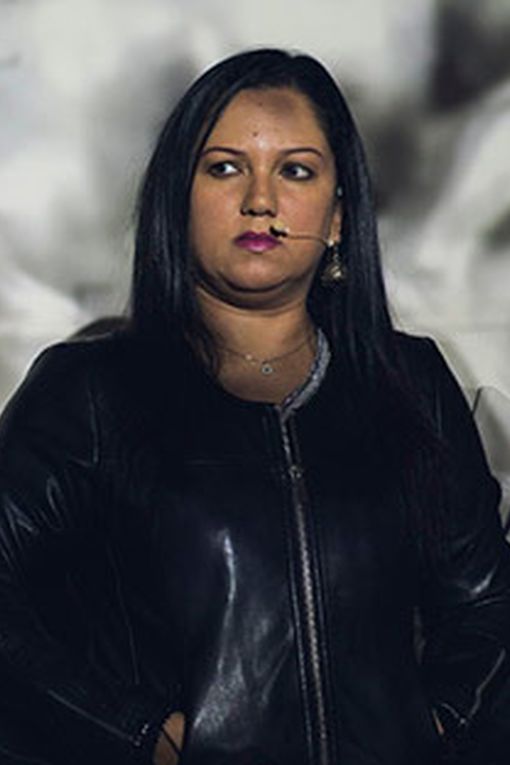
Dr. Priya Srinivasan is a dancer, choreographer and scholar whose research and performance is framed by postmodern sensibilities while grounded in feminist Indian classical performance practices.
Her work brings together live bodily performance with visual art, interactive multimedia and digital technology to think about archives of the body, migration, and female labour from the perspective of art. Her work has been presented in diverse settings in many theatre houses, galleries, universities, museums, and in public spaces such as the Rockbund Art Museum in Shanghai (China), The Korzo Theatre in The Hague (Netherlands), Folkwang Performing Arts Center in Essen (Germany), The Allard Pierson Museum in Amsterdam (Netherlands), typografia galleria in Bucharest (Romania), Krishna Gana Sabha in Chennai (India), Unknown Theatre in California, in international festivals such as AsiaTOPA and Jaipur Literary Festival in Melbourne, Australia, and site specific works at the Irvine Civic Center and Bill Barber Park, in Los Angeles (USA), asiatopa festival, Treasury Building, immigration museum, fed square in Melbourne Australia and the showroom gallery in London. She has presented her performance and academic work at Harvard University (USA), Stanford University (USA), Oxford University (UK) and several other spaces in Switzerland, Sweden, UK, and Austria. She has a PhD in Performance Studies from Northwestern University and has created the form of “talking dances” based on her award winning book Sweating Saris Indian Dance as Transnational Labour.
Originally from Melbourne Priya was trained in the classical and contemporary Indian and Asian arts by Dr. Chandrabhanu and performed extensively with the Bharatam Dance Company in her early years. After returning recently to Melbourne Priya has created a range of pieces that focus on migration and loss, and make visible minority women’s histories offering an alternate feminist aesthetic. She hopes to serve artistic communities in de-centering practices, re-imagining history in the present, develop socio-political critiques, highlighting the importance of migration and movement in these deeply divided critical times in order to enable a better understanding of how art helps communities accept their mutual dependence.
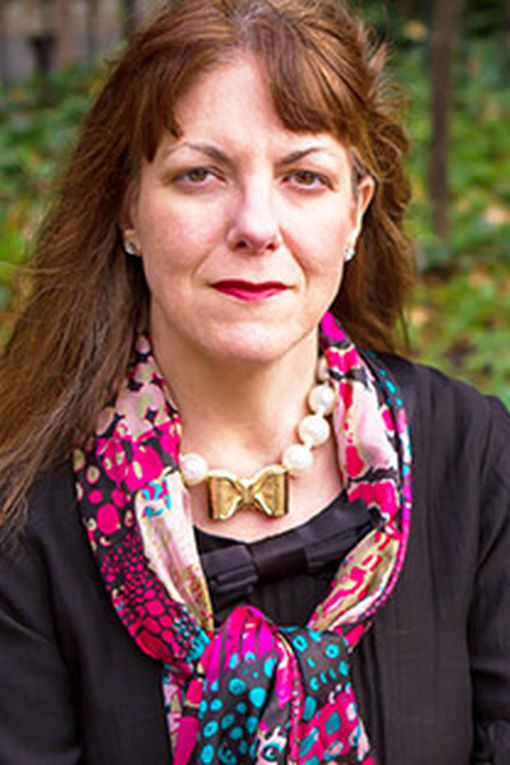
Playwright/text-builder, theatre-maker, translator, lyricist, editor, educator
Caridad Svich received a 2012 OBIE Award for Lifetime Achievement in the theatre, a 2012 Edgerton Foundation New Play Award and NNPN rolling world premiere for Guapa, and the 2011 American Theatre Critics Association Primus Prize for her play The House of the Spirits, based Isabel Allende’s novel. She has won the National Latino Playwriting Award (sponsored by Arizona Theatre Company) twice, including in the year 2013 for her play Spark. She has been short-listed for the PEN Award in Drama four times, including in the year 2012 for her play Magnificent Waste. Her works in English and Spanish have been seen at venues across the US and abroad, among them Arena Stage’s Kogod Cradle Series, Denver Center Theatre, 59E59, The Women’s Project, Woodshed Collective @ McCarren Park Pool, Repertorio Espanol, Ensemble Studio Theatre, Lighthouse Poole UK, Teatro Mori (Chile), Artheater-Cologne (Germany), Ilkhom Theater (Uzbekistan), Teatro Espressivo (Costa Rica), Welsh Fargo Stage (Wales), Homotopia Festival UK, SummerWorks festival in Toronto, and Edinburgh Fringe Festival/UK.
Key works in her repertoire include 12 Ophelias, Iphigenia Crash Land Falls on the Neon Shell That Was Once Her Heart, The Booth Variations, Alchemy of Desire/Dead-Man’s Blues, Any Place But Here, Archipelago, The Way of Water and JARMAN (all this maddening beauty). She has also adapted for the stage novels by Mario Vargas Llosa, Julia Alvarez and Jose Leon Sanchez, and has radically reconfigured works from Wedekind, Euripides, Sophocles, and Shakespeare. Her plays have been directed by Annie Castledine, Maria Irene Fornes, Lisa Peterson, Neel Keller, William Carden, Nick Philippou, Annie Dorsen, Katie Pearl, Stephen Wrentmore, Daniella Topol and Jose Zayas, among many others.
As founder of theatre alliance & press NoPassport her work has intersected with communities of multiple diversities with works responding to the Deepwater Horizon disaster in the US Gulf region, veterans and their families, survivors of trauma and those committed to artistic expression of precarity, advocacy for US Latin@ writing voices, and engagement with representations of the “fragile shores” in our lives. She is co-organizer and curator of After Orlando theatre action in response to the 2016 Pulse nightclub shooting with Missing Bolts Productions at DR2 Theatre in New York City, Finborough Theatre in London, Chaskis Theatre in London in association with Theatre Royal Stratford East and The Vaults and over sixty venues across the US; and Climate Change Theatre Action with The Arctic Cycle and Theatre Without Borders. She has also published over twenty titles with NoPassport Press by authors as diverse as Todd London, John Jesurun, David Greenspan, Carson Kreitzer, Rinde Eckert, Lenora Champagne and Octavio Solis.
Her works are published by TCG, Smith & Kraus, Playscripts, Broadway Play Publishing and more. Three collections of her works for live performance are published as follows: JARMAN (all this maddening beauty) and other plays (Intellect UK, 2016); Instructions for Breathing and other plays (Seagull Books UK, 2014); Blasted Heavens (Eyecorner Press, Denmark, 2012). She has edited several books on theatre including Audience Revolution: Dispatches from the Field (TCG, 2016), Innovation in Five Acts (TCG, 2015), Out of Silence: Censorship in Theatre & Performance and Trans-Global Readings: Crossing Theatrical Boundaries and Theatre in Crisis? (the latter two for Manchester University Press, UK). She is currently editing a book on playwriting for Methuen UK. She serves as associate editor at Taylor & Francis’ Contemporary Theatre Review, where she also edits their Backpages section.
She sustains a parallel career as a theatrical translator, chiefly of the dramatic work of Federico Garcia Lorca as well as works by Calderon de la Barca, Lope de Vega, Julio Cortazar, Victor Rascon Banda, Antonio Buero Vallejo and contemporary works from Mexico, Cuba and Spain. She is alumna playwright of New Dramatists. She has received fellowships from Harvard/Radcliffe, NEA/TCG, PEW Charitable Trust, and California Arts Council. She holds an MFA in Theatre-Playwriting from UCSD, and she also trained for four consecutive years with Maria Irene Fornes in INTAR’s legendary HPRL Lab. She teaches creative writing and playwriting at Rutgers University-New Brunswick and Primary Stages’ Einhorn School of Performing Arts. She has taught playwriting at Bard, Barnard, Bennington, Denison, Ohio State, ScriptWorks, UCSD, and Yale School of Drama.
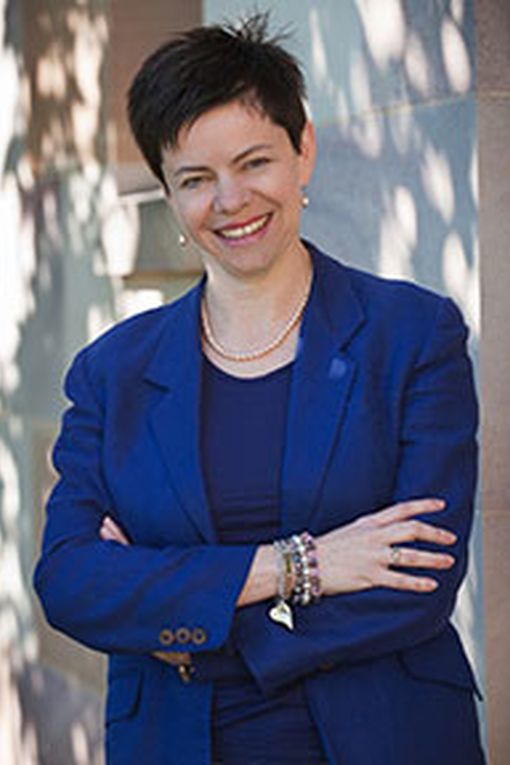
Associate Dean (2014-17), Research, Faculty of Humanities and Social Sciences, University of Queensland
My research focuses on digital tools for theatre research. I have produced an innovative research tool, called Ortelia, to enable the analysis of theatre space through virtual reality. It provides the means for curating and archiving art gallery, museum, and theatre spaces, as well as theatre productions and gallery exhibitions. I have been instrumental in the development of AusStage, the Australian performance research database that documents performance in Australia. This work has emerged from more conventional research in theatre: I have published widely on drama and theatre, including being the co-author of Post-Colonial Drama (with Helen Gilbert) and Women’s Intercultural Performance (with Julie Holledge), and author of Unsettling Space: Contestations in Contemporary Australian Theatre (2006) which explores the politics of contemporary Australian theatre, and Theatre’s Heterotopias: Performance and the Cultural Politics of Space (2014). A forthcoming co-authored book is A Global Doll’s House: Ibsen and Distant Visions, by Julie Holledge, Jonathan Bollen, Frode Helland, and me. I have also been active in editing. I am co-editor, with Anna Birch, of Performing Site-Specific Theatre: Politics, Place, Practice (2012), and among my guest-edited issues of journals are two issues of Contemporary Theatre Review; the first, with Anna Birch, was on Site-Specificity and Mobility (2012) while the second, with Maria Delgado, was on the Politics, Processes and Practices of Editing (2015). I have served as Editor of Theatre Journal (2016-17).
My approach to theatre research echoes Central’s—the idea of articulating a vision for theatre and performance in twenty-first century society — and I look forward to learning how staff at Central achieve this.
